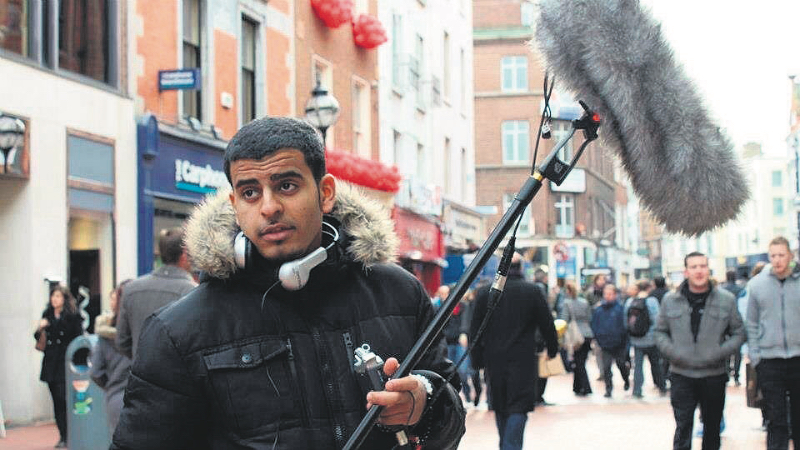In this moving letter written from his Egyptian prison cell, Amnesty International Prisoner of Conscience Ibrahim Halawa, from Firhouse, reflects on his time spent away from Dublin.
Dear Ireland,
I really don’t know what to say, I have been taken away from you for so long. But I miss you dearly. It’s really out of my hands. I can’t understand, I just can’t understand why they have kidnapped me away from you.
I was so young while you were teaching me how to live, laugh, love and care. But they have taken me away before you had the time to teach me how to struggle, how to deal with evil and hatred.
When I was young I used to run to you whenever I was sad and needed to complain about my kiddie problems. The time my mum delayed getting me the latest PlayStation game when all my other friends had it.
Or when I wasn’t allowed stay out late at night and when I entered secondary school and exams were much tougher than before. Or that time I came to complain about my first teenage love.
But now that I’m growing up away from you and banned from talking to you, who am I supposed to complain to now that my kiddie problems have turned out to be just a drop in the ocean.
Ireland, I really need to complain to you about how one human enjoys torturing another human, the continuous injustice, the oppression and the killing of the innocents.
Ireland, I’m lusting to walk on the sand of Bray beach, to seek freedom from the top of the Cliffs of Moher, to feel the trees that make me feel safe again and to see that kind bus driver on the daily commute, smiling at me even though he does not know me.
Ireland, I really want you to protect me in any land and under any sky.
Now I understand that you were not crying with me but you were crying because of what the world holds for me.
My one final wish is, I beg that if I die away from you, that I will be taken home to be buried in your soil and feel your goodbye tears.
Ibrahim Halawa’s story
IN AUGUST 2013, Ibrahim and his three sisters went to a protest in Cairo following the violent dispersal by security forces of other protests across Egypt that left up to 1,000 people dead in a single day.
When the protest turned violent they took refuge in a nearby mosque.
At least 97 people were killed as the Egyptian security forces moved in.
On August 17 they were arrested and taken to prison. His sisters have since been released on bail but Ibrahim is still in jail in Cairo, over two and a half years later.
Amnesty International has conducted a thorough investigation of the case and determined that Ibrahim is innocent.
The alleged incidents that he is accused of took place at the entrance to the Al Fath mosque. Ibrahim and his sisters were locked in the inner part of the mosque where they fled to and escape the security forces’ gunfire at this time.
Therefore, Amnesty states that he could not possibly have committed the crimes he has been charged with. They have declared Ibrahim a Prisoner of Conscience, imprisoned for exercising his right to freedom of expression.
